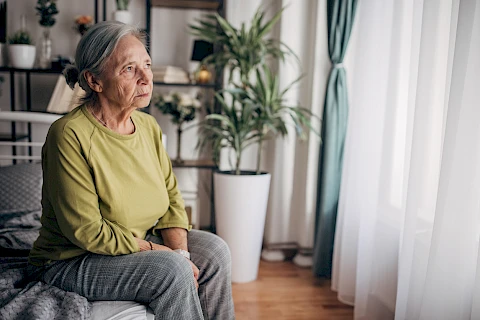
Sundowning is a term for late-day confusion and agitation that impacts many seniors with dementia. It can be incredibly challenging, not only for those experiencing it but also for their caregivers. Often occurring in the late afternoon or early evening, these symptoms can be distressing and disrupt normal routines. However, the right strategies can make sundowning symptoms more manageable.
What is Sundowning?
Sundowning is a phenomenon that primarily affects people with Alzheimer's and other forms of dementia. Symptoms can include increased confusion, agitation, and restlessness. Often, caregivers notice these symptoms intensify as daylight fades, hence the name. The exact cause of sundowning is yet to be determined. However, factors such as fatigue, reduced lighting, and a disrupted internal body clock could play a role.
Creating a Calming Environment
A busy or chaotic environment can amplify confusion and agitation in seniors with dementia. Reducing noise levels, increasing natural light during the day, and minimizing clutter can all contribute to a calmer environment. Consider using low-level, warm lighting at night to create a peaceful and inviting ambiance. Ensure the home is as safe as possible to give you and the senior peace of mind.
The Role of Routine in Sundowning Management
Maintaining a consistent daily routine can provide a sense of security and structure for seniors with dementia. Regular meal times are crucial as hunger can exacerbate confusing feelings. Aim to keep meals nutritious and balanced to support overall health. A regular sleep schedule can help regulate the body clock and reduce sundowning symptoms.
Include physical activity in the daily routine. Regular exercise promotes physical health and helps maintain a robust sleep-wake cycle. Consider gentle activities that are safe and enjoyable for older adults, like walking or chair yoga. Always consult with a doctor before starting a new exercise routine.
Identifying and Managing Potential Triggers
Effectively managing sundowning involves identifying and controlling potential triggers, which can vary among individuals. Some common ones include fatigue, hunger, and environmental changes.
Once a potential trigger is identified, develop strategies accordingly. If fatigue is a trigger, ensure the senior gets enough rest. If hunger triggers symptoms, add a healthy snack to their evening routine. To prevent environmental triggers, try to keep their home environment as steady, calm, and unchanged as possible. Regularly reassess and adjust strategies as needed for optimal management.
Implementing Strategies in a Home Care Setting
Implementing sundowning strategies in a home care setting may involve trial and error. Start by introducing changes gradually and monitoring changes in the senior’s sundowning symptoms. Remember to be patient and understanding. Sundowning is a result of the disease, not an intentional behavior. Try to stay calm and consistent in your responses to reduce further agitations.
Get In-Home Care Support From Senior Helpers Chicago/Evanston
Effectively managing sundowning is crucial for the well-being of seniors with dementia and their caregivers. If you live in Chicago or Cook County, IL, and need help caregiving for a senior loved one with dementia, connect with Senior Helpers Chicago/Evanston. We have a team of compassionate, professional caregivers who can help you navigate the challenges of dementia care in the comfort of your own home. Contact us today to explore how we can assist in providing high-quality care for your loved ones.